Garden Maintenance Strawberry Hill
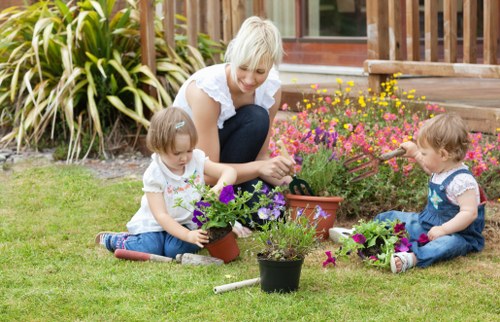
Welcome to Your Guide on Garden Maintenance in Strawberry Hill
Garden maintenance in Strawberry Hill is more than just a chore—it’s an art form that connects you to nature. In this beautiful suburb, keeping your garden in top shape enhances your quality of life and creates a peaceful escape from the hustle and bustle of daily routines. With a blend of passion, care, and a strategic plan, anyone can achieve a thriving garden.
Residents of Strawberry Hill cherish their outdoor spaces, and regular maintenance not only improves the aesthetics of your home but also contributes to local biodiversity. Whether you are an experienced gardener or a beginner, understanding the basics of garden care and the seasonal rhythms of nature will help you nurture a vibrant and healthy garden environment.
In this comprehensive article, we delve into the importance of garden maintenance, break down effective routines, and offer seasonal tips tailored to the Strawberry Hill climate. We also take a closer look at the local areas surrounding Strawberry Hill, all while employing practical advice that you can implement right away in your garden.
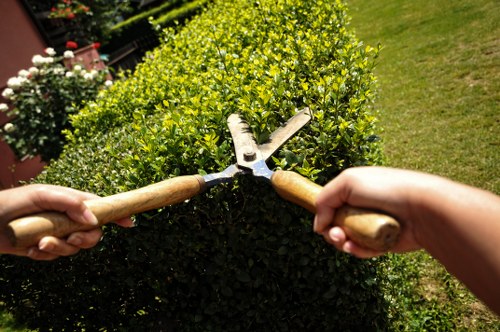
Why Garden Maintenance in Strawberry Hill Is Important
Garden maintenance is vital for several reasons. Firstly, a well-maintained garden improves your home’s curb appeal and creates a welcoming atmosphere. The grounds are a reflection of your personality and taste, and a regularly cleaned and nutritious garden can express pride in living in such a picturesque area as Strawberry Hill.
Secondly, routine garden care contributes to the health of your plants. Regular pruning, weeding, and nutrient management can prevent disease and pest infestations. This is crucial in Strawberry Hill, where our local microclimate can sometimes foster unwanted pests if plants are left unattended.
Thirdly, professional garden maintenance saves time and effort in the long run. Whether you choose to invest time personally or engage local garden services, having a consistent plan reduces the risk of overgrowth and ensures sustainability throughout the year.
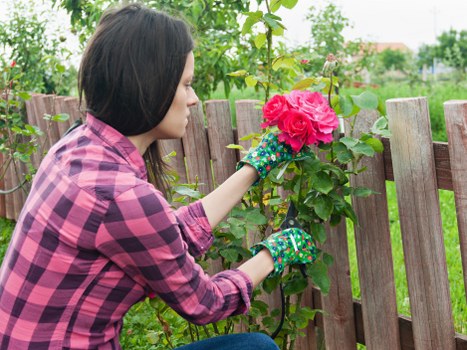
Planning Your Garden Maintenance Routine
Planning is the cornerstone of successful garden maintenance. Before starting any project, take note of what your garden needs. List the tasks such as watering, pruning, weeding, and soil testing. By organizing these tasks into smaller, manageable steps, you can ensure nothing is overlooked.
For beginners especially, setting up a weekly schedule for maintenance can keep your garden flourishing. A clear plan might include a mix of daily, weekly, and monthly tasks—like daily watering during summer and monthly mulching during cooler seasons.
Additionally, make sure to invest in quality garden tools. Investing in ergonomic tools not only improves efficiency but can also reduce physical strain. This approach is particularly beneficial in Strawberry Hill, where the temperate climate can extend the gardening season nearly all year round.
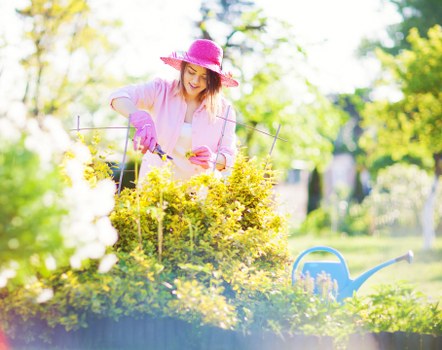
Seasonal Garden Tips for Strawberry Hill Residents
Living in Strawberry Hill, you experience distinct changes in weather that require seasonal adjustments in garden care. In the warm months, focus on regular watering, mulching, and managing pests that tend to flourish in the heat. A robust irrigation system can be a life-saver during those hot summer days.
During autumn, consider trimming back overgrown branches and preparing your garden for cooler weather. This season is perfect for planting bulbs and tender perennials, adding bursts of color as the garden transitions into winter.
In winter, the focus shifts to protection. Use frost cloths or other protective coverings to shield sensitive plants from freezing temperatures. Early spring then becomes an opportunity to rejuvenate with fresh mulch, organic fertilizers, and the planning of new plantings for the upcoming season.
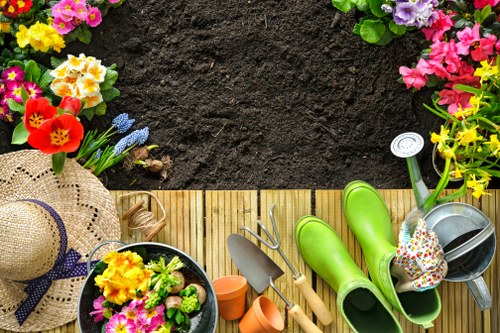
Understanding Local Weather Impact on Garden Maintenance
Strawberry Hill’s climate can be unpredictable. Local weather patterns can suddenly change, impacting your garden. It is essential to adapt your garden care routine to these shifts by monitoring forecasts and planning for sudden rain or heatwaves.
Microclimates are common in this region and can affect different parts of your garden uniquely. For example, areas shaded by large trees might not require as much watering compared to open, sunlit sections. Test soil moisture levels periodically to tailor your maintenance schedule accordingly.
Moreover, being proactive by incorporating resilient plant varieties can help your garden flourish, even in unexpectedly harsh weather conditions. Research local horticultural recommendations to find species that thrive in Strawberry Hill’s particular climate.

Designing a Sustainable Garden
Embracing sustainable garden practices is an excellent way to contribute to the local ecosystem. Eco-friendly practices such as composting, rainwater harvesting, and selecting native plants help ensure that your garden remains both beautiful and environmentally conscious.
The practice of composting not only reduces waste but also provides nutrient-rich organic matter for your garden. Simple composting bins can fit into even the smallest of gardens, making it easy for every household in Strawberry Hill to adopt this eco-friendly habit.
Rainwater harvesting is another sustainable option that can save water and reduce your dependence on municipal supplies. By setting up a rain barrel or similar device, you make the most of every raindrop while maintaining a healthy garden.

Choosing the Right Plants for Your Garden
Plant selection can make or break your garden project. Native species are often the best choice for Strawberry Hill as they are adapted to local conditions and require less water and chemical intervention. Examples include local shrubs, ornamental grasses, and indigenous flowering plants.
When selecting your flora, consider the design and maintenance requirements. Some plants need more frequent trimming, while others might thrive on minimal care. It’s important to balance aesthetic appeal with practicality.
Consult local garden centers or horticultural experts to discover which plants will perform best in the specific soil and climate conditions of Strawberry Hill. Their insights can prove invaluable, ensuring your garden is both stunning and resilient.

Yard Maintenance Tools and Equipment
Gardening is simplified greatly by having the right tools. Basic equipment like shovels, rakes, pruners, and hoses form the backbone of any maintenance routine. Investing in durable, high-quality tools pays off in the long-run, reducing the need for frequent replacements.
Modern advancements have also introduced efficient devices such as electric trimmers and automated watering systems. These can significantly reduce manual labor, ensuring your garden maintenance routine is both time-saving and effective.
Regularly cleaning and maintaining your tools also plays a key role. By sterilizing pruners and sharpening blades, you prevent the spread of plant diseases and ensure cleaner cuts when trimming branches.

Organic vs. Chemical Garden Care
Gardeners in Strawberry Hill often face the choice between organic and chemical methods in garden care. Organic methods utilize natural fertilizers, compost, and biological pest control and are generally safer for both the environment and human health.
An organic approach also nurtures the local ecosystem. Using naturally derived compost or organic liquid fertilizers can improve soil health over time without introducing harmful chemicals.
On the other hand, chemical approaches may provide quicker results and are often easier to manage. However, they require careful handling and should be used sparingly to avoid negative impacts on the surrounding flora and fauna.

Integrating Technology in Garden Maintenance
In today’s digital era, technology plays an increasing role in garden maintenance. Various apps can help you monitor plant health, schedule watering, and even identify pests through image recognition. For modern Strawberry Hill residents, such tools can simplify the upkeep and ensure consistency in care.
Smart irrigation systems that adjust watering based on weather forecasts not only save water but also ensure that your plants receive just the right amount.
Embracing these innovations can transform your garden from a traditional space into a smart, efficient environment that meets both aesthetic and practical needs.

Local Areas Surrounding Strawberry Hill
Strawberry Hill is nestled among a tapestry of unique neighborhoods that share a love for nature and quality living. In this section, we discuss 10-15 of the closest areas and how their local vibes influence garden maintenance practices.
Surry Hills is very close by and known for its eclectic mix of modern and vintage homes. Garden enthusiasts here often focus on urban landscaping with creative container gardens and rooftop green spaces.
Redfern boasts a vibrant community with a strong commitment to sustainable living. Homeowners in Redfern embrace organic garden maintenance, making use of community composting programs and eco-friendly fertilizers.

More Nearby Areas with Unique Garden Influences
Paddington offers a mix of classic homes with modern garden spaces. Garden maintenance here revolves around preserving traditional aesthetics while incorporating trendy elements like vertical gardens and succulent arrangements.
In Double Bay, residents often maintain luxurious gardens with fine-tuned irrigation setups and meticulously pruned hedges. The upscale environment drives a high standard of garden care.
Bondi is famous for its beachside charm, and many residents incorporate native coastal plants that thrive in sandy soils, creating a fusion of marine and garden environments that is both refreshing and practical.

Exploring Additional Nearby Areas
Coogee is another wonderful locale near Strawberry Hill. With its laid-back vibe, garden enthusiasts here often focus on low-maintenance landscaping that can withstand the coastal environment.
Cronulla and Manly further add to the list of diverse areas with distinct gardening cultures. These areas emphasize the integration of native flora that can cope with saline conditions and breezy weather.
Glebe and Darlinghurst are known for their creative approaches to urban gardening. Homeowners often experiment with container gardens and vertical planting, ensuring even small spaces can flourish with greenery.

Final Thoughts on Garden Maintenance in Strawberry Hill
In conclusion, proper garden maintenance in Strawberry Hill requires a thoughtful blend of routine care, seasonal adjustments, and the use of modern techniques. Whether you lean towards organic practices or integrate technological tools, the goal remains to create and sustain a thriving outdoor environment.
Regular maintenance not only beautifies your property but also supports local biodiversity and environmental health. This comprehensive approach makes every effort worthwhile and turns your garden into a natural sanctuary.
Remember, the journey to a healthy garden is a continuous process. Every season brings new challenges and opportunities, so the key is to remain flexible and adaptable in your garden care strategies.

Your Personalized Garden Maintenance Checklist
- Create a weekly, monthly, and seasonal maintenance schedule.
- Invest in quality tools and update them regularly.
- Keep track of local weather to adjust watering and care routines.
- Choose native and sustainable plants for better adaptability.
- Utilize modern technology to streamline tasks.
This checklist serves as a practical guide for anyone looking to improve their garden’s overall health and beauty. It is important to view maintenance as an ongoing process where even minor improvements build over time.
With a few adjustments and a consistent routine, anyone living in Strawberry Hill can enjoy the best of both natural beauty and organized care. Take pride in every small step you take towards a sustainable and vibrant garden.
Frequently Asked Questions (FAQs)
Q1: How often should I water my garden in Strawberry Hill?
A: Depending on the season, most gardens require watering 2-3 times per week. During summer, more frequent watering may be needed, while winter may require less frequent watering. Monitoring soil moisture and weather conditions can help adjust the schedule.
Q2: What are the best native plants for a Strawberry Hill garden?
A: Native plants such as Grevilleas, Bottlebrush, and Banksias thrive in the local conditions of Strawberry Hill. These plants are resilient, require less water, and add a natural charm to your garden, making them ideal choices.
Q3: Are organic fertilizers more effective than chemical ones?
A: Organic fertilizers improve soil health naturally and are less harmful to the ecosystem, making them a good long-term choice. While chemical fertilizers may show quick results, they can lead to soil degradation over time if not used properly.
Q4: How can I incorporate technology into my garden maintenance?
A: You can use smart irrigation systems that adjust watering based on weather data, mobile apps for plant health monitoring, and online platforms for gardening tips. These tools help streamline the process and ensure efficient maintenance.
Q5: What local services are available for garden maintenance?
A: Many local services in Strawberry Hill offer personalized garden care packages. These services include landscape design, regular maintenance, and seasonal harvesting, which can provide professional assistance while tailored to local needs.
By addressing these common questions, we hope to provide useful insights and practical solutions for garden enthusiasts in Strawberry Hill. Whether you are a beginner or an experienced gardener, there's always something new to learn about keeping your outdoor space flourishing.
Embrace these tips and strategies to cultivate a garden that not only enhances your home but also reflects the natural beauty and community spirit of Strawberry Hill. With knowledge, planning, and a bit of effort, your garden can be a testament to nature’s resilience and beauty.
Remember, the heart of garden maintenance lies in passion and persistence. Every weed pulled, every plant pruned, and every careful watering session contributes to the overall success of your garden. Enjoy the process, and let nature guide you through each season!

